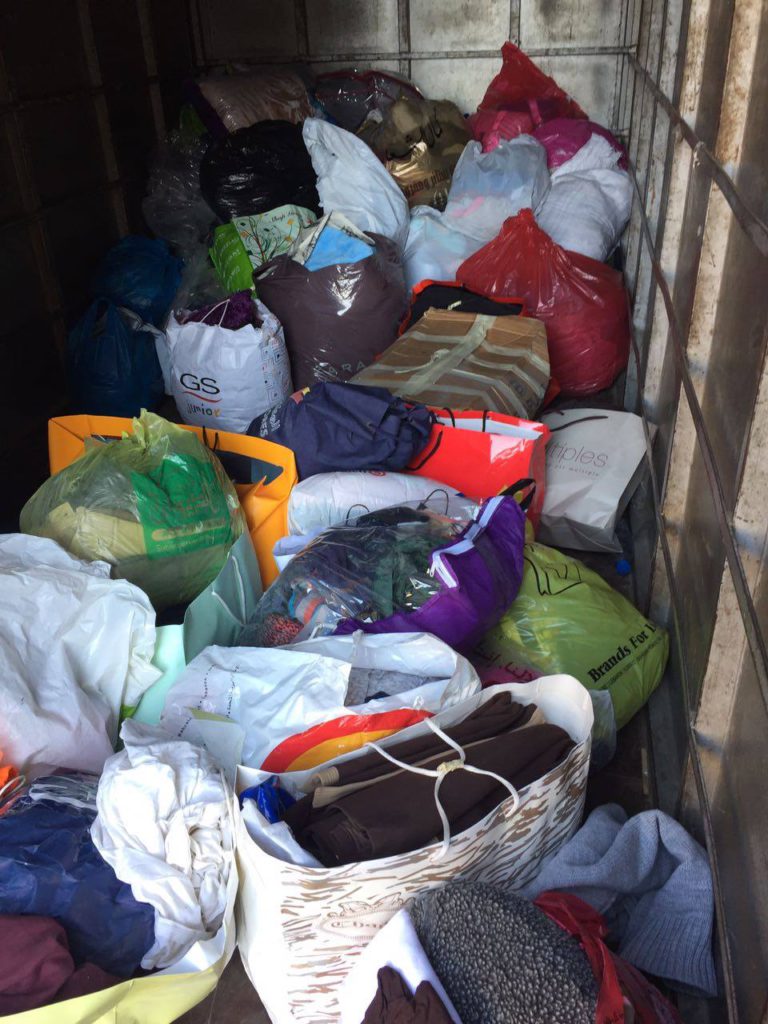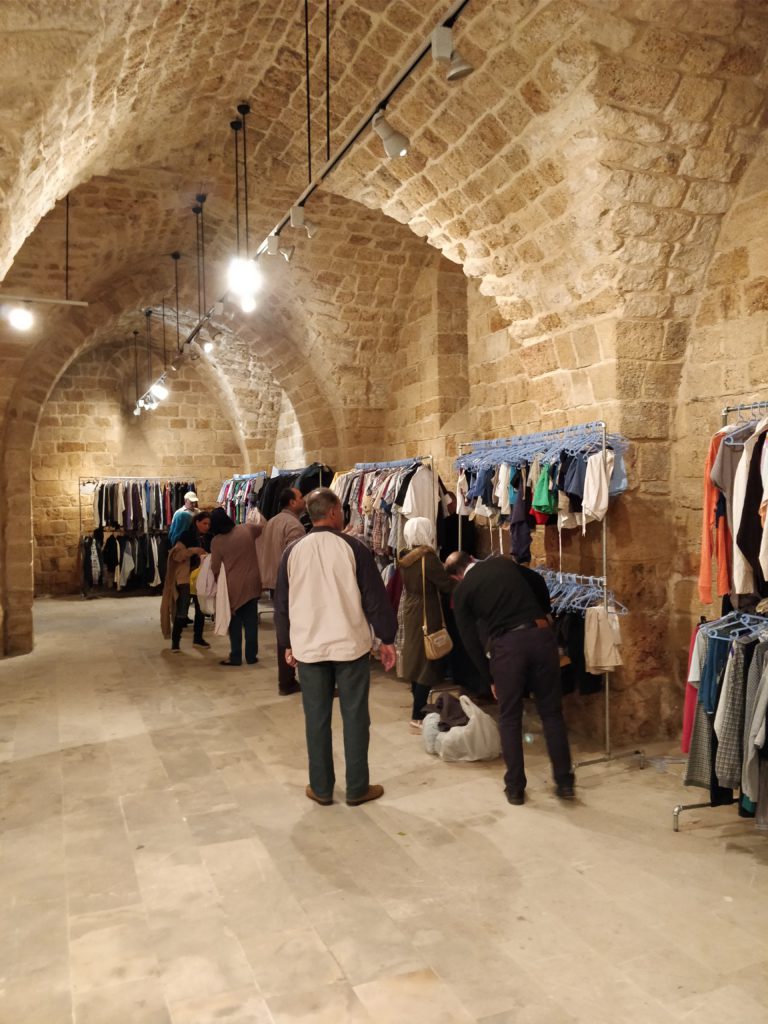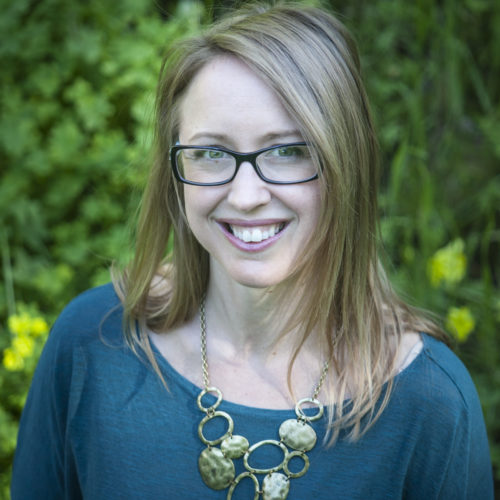How FabricAID works:
When people want to get rid of clothes, they often give them to NGOs. FabricAID buys those used clothes, sometimes up to 1,000 kilograms per day. Additionally, they also place collection bins around the country.
The clothes are then transported to a centralized warehouse where eight employees sort, clean and categorize the garments based on quality.
“The revealing clothes, usually not demanded by the typically conservative marginalized communities, go to a fashion school in Beirut where students redesign the clothes, which are then sent to a refugee camp to be sewn by seamstresses,” says Itani. “We employ six Syrian refugees. Those garments are then sold at high-end stores and fashion exhibitions.”
The rest of the clothes are distributed to permanent markets and pop-up shops throughout Lebanon, where people can buy used clothes at an average price of $0.9. Most of the clothes are between $.03-$2 per item, making them accessible for anyone.
“It’s a proper shopping experience and doesn’t feel like charity,” says Itani. “A person comes in, gets a shopping bag, then goes and pays. It’s dignifying.”
Most pop-up shops have 5,000 items of clothing with some going all the way to 20,000.
All of this recycling is a boon to Lebanon, which has a waste crisis. It is especially important to recycle textiles, which are thrown away at an alarming rate. According to the True Cost Project, the world now consumes about 80 billion new pieces of clothing every year.
Livia Firth, Creative Director of Eco-Age, told the True Cost Project: “A garment from a fast fashion brand usually lasts in a women’s wardrobe for 5 weeks. Each year across the world, 1.5 billion garments are sewn by an estimated 40 million people, working in 250,000 factories. These are predominantly made in countries described by the UN as the world’s least developed. All in all, the garment and textile industry is estimated to be worth some $3 trillion. And the bulk of that goes into the pockets of the owners of those fast fashion brands.”
The making of an entrepreneur:
At just 22-years-old, Itani is not your typical entrepreneur. Born and raised in Beirut, he remembers always having an entrepreneurial spirit.
When he was 16, he participated in a program called Injaz, which teaches Lebanon’s youth how to become entrepreneurs.
“We created our own company, and what we did was collect trash in Beirut, brought it to our school, sorted it and sold it,” he says. “We were like a waste management company and had a huge team of up to 40 students. I was the vice president of Public Relations.”
He then studied industrial engineering for four years, and left during his senior year to focus completely on FabricAID, a role he says can be challenging at times.
“We were able to grow quickly and now have 15 employees,” he says. “It’s a hassle. Managing their salaries, their day-to-day activities, reducing their idle time, increasing their efficiency. It’s one of the hardest tasks as an entrepreneur. You really spend a lot of time managing people and trying to increase efficiency.”








